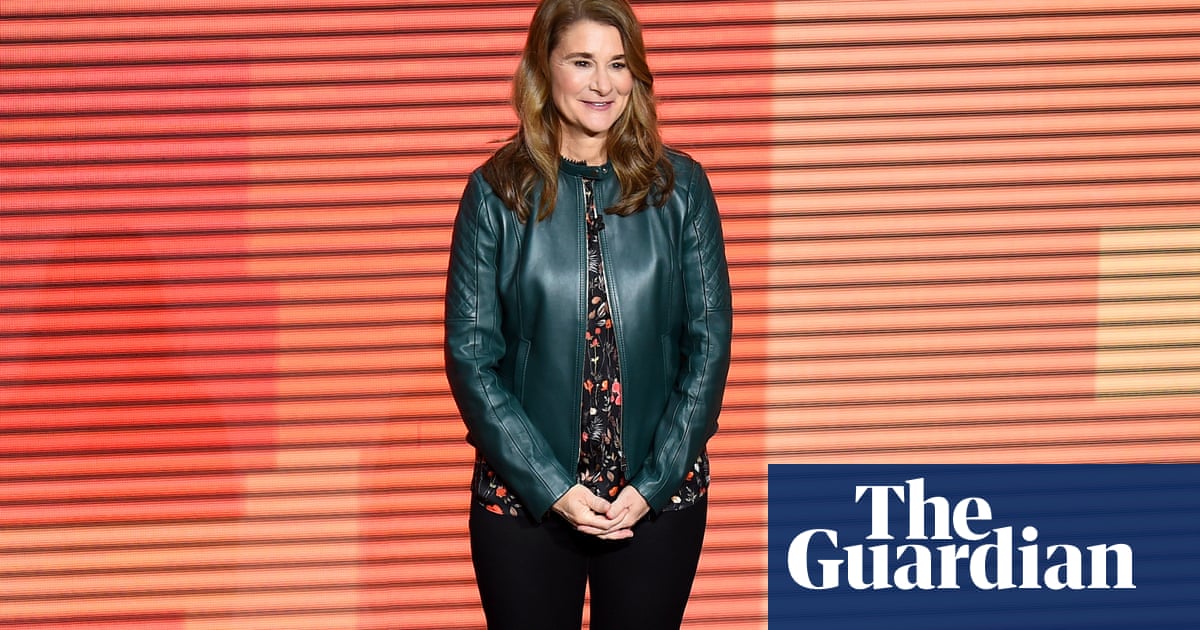Melinda French Gates is a woman who seemingly leaves little to chance. From girlhood she would write down goals for herself to reach, and she was just as driven at college and in her early career at Microsoft, where she famously met and married its billionaire co-founder Bill Gates. The coupledivorced in 2021.
There is a small, sad moment in her memoir The Next Day where she writes of happily gaining weight in pregnancy because it was the first time she’d felt so free “from perfectionism … the crushing relentless societal pressure to look a certain way”. Only well into middle age, when a friend gently questions her constant self-improvement projects, does she wonder whether in her conscientiousness she had “missed opportunities to embrace spontaneity, lean into the unexpected”.
This anxious striving after perfection is something many women will recognise in themselves, and her message that it’s fine to let rip sometimes is – like much of the advice here – both sensible and kind. Yet perhaps she’s still struggling to take it herself.
For whenever this book touches briefly on some deeper emotion, especially around the scandal and subsequent split that blew up her beautifully ordered life, the shutters come down. Though understandable on a human level – the couple have three grownup children she clearly wants to protect – it’s arguably a problem for a book pitched as an intimate story of surviving heartbreak.
It’s not that the pre- or post-Bill parts are without interest. Melinda French was born the daughter of a rocket engineer, who deliberately hired female mathematicians because he’d noticed that mixed teams got better results. He taught the young Melinda to code, and his belief in her abilities powered her through a computer studies degree packed with “brash arrogant guys who just shouted out all the answers” – a well-told lesson on what fathers can do for their daughters’ self-confidence. Similarly, a passage about how much she loved being able to quit work and spend time with her first baby pivots quickly into indignation that other women don’t enjoy such luxuries, and her long advocacy for universal paid family leave for parents. But deep down, she must know this isn’t what the readers came for.
In October 2019, she writes, the New York Times published “a deeply disturbing article” suggesting her husband had betrayed “not only our marriage but also my values”. (Though she doesn’t spell it out, the paperreportedthat he had met Jeffrey Epstein several times to discuss philanthropic ventures, despite the latter’s conviction for soliciting prostitution from a minor. “Bill Gates regrets ever meeting with Epstein and recognizes it was an error in judgment to do so,” a spokesperson said at the time. Further uncomfortablerevelations, including an historic affair with an employee, followed.)
The couple best known for giving their billions away to good causes, ranging from the eradication of polio and TB to women’s economic empowerment, were suddenly mired in scandal. One make-or-break holiday to New Mexico and much tortured reflection later, her “inner voice” tells her to leave.
There are some intriguing glimpses of friction beneath the surface of the marriage, including a row with Bill over the lavish payoff he was proposing for an unnamed colleague that induces a full-blown panic attack, because she feels ‘‘incredibly disrespected”. But having always publicly avoided questions about what really drove her to leave, she writes, “I still feel that way”.
Perhaps she would rather be known for her work than as a wronged wife. French Gates certainly sounds sincere about her feminist-focused personal foundation Pivotal Ventures, on which she resolved to concentrate after years of watching women’s rights being rolled back because she can’t bear “the idea that my granddaughters could grow up with less freedom than I have had”. It’s a rare hint of her politics that I’d have liked to hear more about, but once again, we quickly move on.
What’s left, carefully stripped of anything too awkward, is the story of a perfectly nice-sounding woman who would never have chosen to break up a family but was forced to for reasons she’d rather not discuss, and is doing fine now: case closed. Letting rip, it seems, will have to wait.
The Next Day: Transition, Change and Moving Forward by Melinda French Gates is published by Flatiron Books (£17.99). To support the Guardian and the Observer buy a copy atguardianbookshop.com. Delivery charges may apply.
